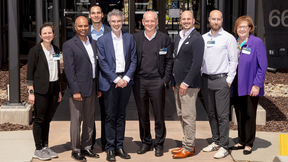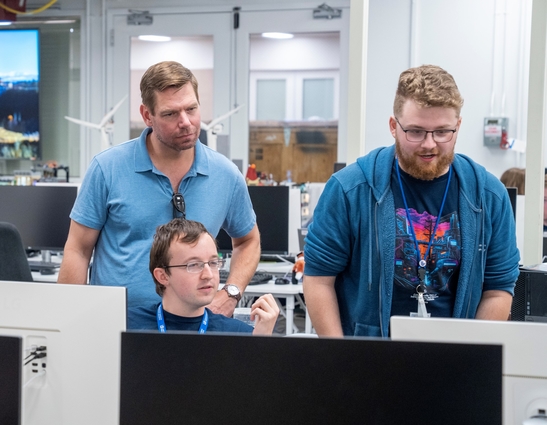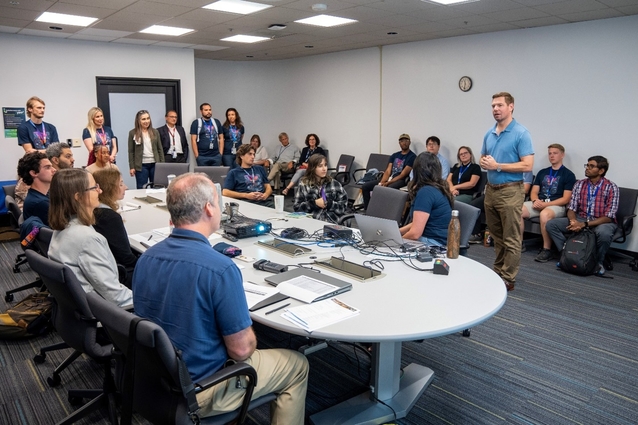A different kind of Cyber and Critical Infrastructure Summer Institute
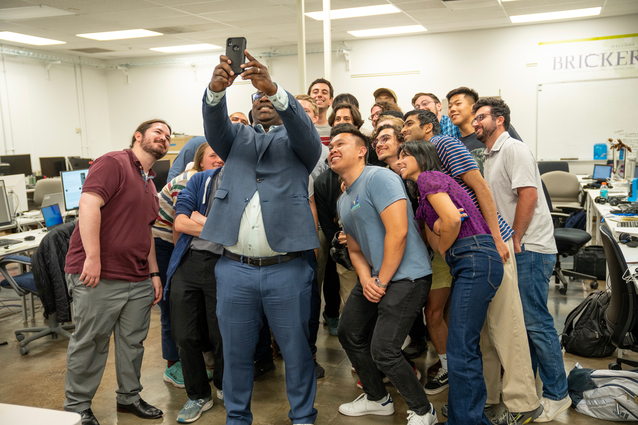 (Download Image)
(Download Image)
Congressman Jamaal Bowman takes a selfie with CSI students during a visit to discuss cybersecurity education. (Photo: Blaise Douros/LLNL)
Each year, Lawrence Livermore National Laboratory (LLNL) offers students the opportunity to join the Cyber and Critical Infrastructure Summer Institute (CSI) for an internship working on LLNL’s cybersecurity and critical infrastructure projects.
“CSI is for both cyber and non-cyber students. It demonstrates to interns that protecting our critical infrastructure and other systems requires an interdisciplinary approach. You need both an understanding of the systems you want to protect and cybersecurity,” said Amy Askin, CSI director and group leader in the Computational Engineering Division at the Laboratory.
“Protecting our nation’s critical infrastructure requires talent from many disciplines. For example, CSI puts interns from cybersecurity and power systems in the same room to solve unique challenges. That’s what makes it different,” said Hunter Wodzenski, a network security engineer who develops defensive cybersecurity solutions within the Global Security Directorate and a former CSI intern.
This summer, the CSI hosted 65 interns who participated in a number of activities, including a cybersecurity capture-the-flag competition, tours of the National Ignition Facility (NIF) and the Lab’s quantum computing facility, tutorials and workshops, and Q&A sessions with principal investigators. Each CSI intern was mentored by a Laboratory employee working in cybersecurity and/or critical infrastructure resilience.
“Working within CSI gives interns the opportunity to explore meaningful work alongside full-time Lab employees tackling impactful projects,” Wodzenski said.
“I enjoy the energy and fresh perspective that CSI interns bring during the summer — and this year’s cohort was no exception,” said Cecilia Klauber, CSI mentor and power-systems engineer at the Lab. “We had some really engaged and driven individuals that quickly became key contributors on our collaborative teams. I especially enjoyed watching my students dive into a new topic or application, build up their knowledge and confidence, take ownership of their research questions and analysis and present the culmination of their efforts to management and VIPs.”
The capstone event of this year’s CSI was a visit from Congressman Eric Swalwell, which Lab Director Kimberly Budil attended.
“Congressman Swalwell emphasized the national imperative of developing a cybersecurity workforce for the future,” Askin said. “The program has converted 28 interns to staff in the last five years. So far, so good.”
During Swalwell’s visit, interns presented their projects at ‘Squirrel Tank’, a proposal contest akin to the ‘Shark Tank’ television show where students pitched their projects to Lab leaders playing the role of sponsors. (Squirrels also happen to wreak havoc on the electrical grid.)
This year’s Squirrel Tank winners were interns Rayna Arora, T.G. Roberts and Rhett Guthrie.
Arora, an artificial intelligence major and design minor at the Massachusetts Institute of Technology, pitched her project — Bayesian Optimization for a Focused Disaster Response — a probability-based optimization algorithm to inform responders on how to best direct their resources to keep infrastructure components functioning properly.
Arora was attracted to the CSI due to its interdisciplinary approach and desire to expand her skillset.
“I highly recommend the CSI,” she said. “All the projects expand the state of the art and apply cybersecurity to do good for the world. I’ve been amazed to learn what my fellow interns are working on. I think anybody could find a project at the CSI that interests them and makes the world a better place.”
Roberts’s winning pitch — Data Center Debrief: Integration of High-Fidelity Novel Loads in Power Grid Simulations — examined how to integrate burgeoning data-center demands on the electrical grid into simulations.
Roberts, who studies power systems and inverter-based microgrids at the University of Illinois Urbana-Champaign (UIUC), is passionate about ensuring renewables are integrated into the grid in a safe, stable manner to combat climate change.
“I was interested in the CSI because I have never worked at a national lab before and I thought it would be a really fantastic opportunity to see how working here was different than working in academia and industry,” Roberts said.
Guthrie, an electrical engineer working on his Ph.D. at Texas A&M University who studies solar flares’ effects on the power grid, identified threshold values for grid circuit breakers for his winning pitch.
“The best part of CSI was getting to hear about the work other interns were working on and the different approaches they took,” Guthrie said.
“CSI is different because the program helps you unlock your potential, shows you multiple paths to follow, fires up your motivation and allows you to go beyond your former self,” said James Carambat, a cybersecurity software engineer and former CSI intern turned LLNL employee.
“I had the opportunity to mentor two interns this summer whose contributions will be of great benefit moving forward. And as a mentor, I also got to participate in some of the fun activities like the campus bike ride and kayaking. Getting to know and work with all of the interns in the CSI was a real treat and I’m looking forward to doing it again next summer,” said Judd Morse, CSI mentor and network security engineer.
--Genevieve Sexton
Contact
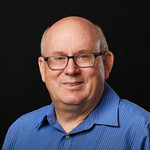 Stephen Wampler
Stephen Wampler
[email protected]
(925) 423-3107
Tags
HPC, Simulation, and Data ScienceSecurity
Computing
ASC
Featured Articles
